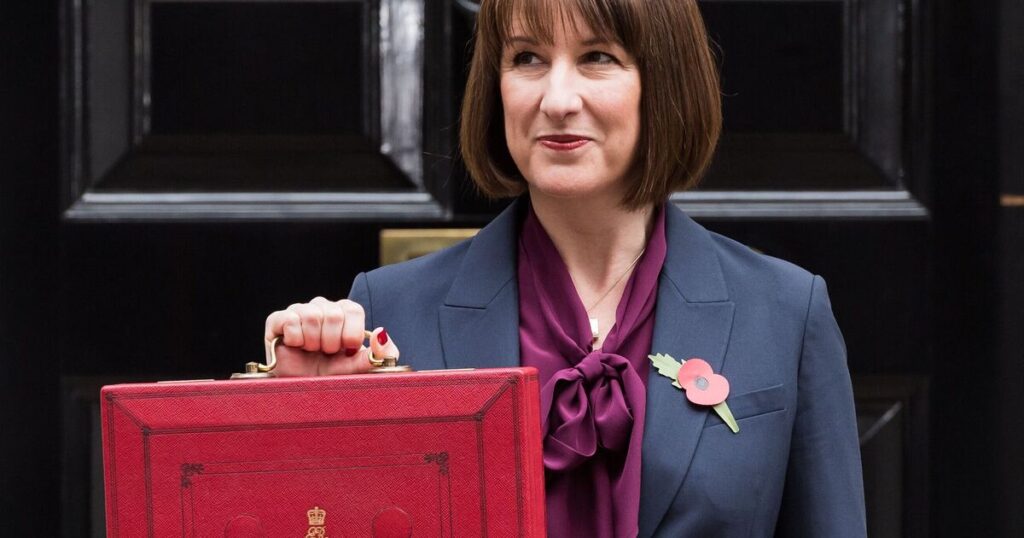
A litany of crippling tax rises could be on the cards this autumn as Chancellor Rachel Reeves looks to try to repair the damage of last year’s Budget.
Financial experts have picked out 11 key tax rises that look to be likely candidates for Labour to use to try to right the country’s financial problems. While it’s highly unlikely that all 11 tax rises would be implemented at the same time, finance firm Bishop Fleming has suggested that these 11 financial levers are the most likely that the government will turn to this autumn when Rachel Reeves announces her next Autumn Budget in October.
The firm points to a 70-year high in taxation, and a staggering national debt, compounded by poor decisions in the last budget, as the reason rises are needed. It said, as part of spending review reaction in June: “The national debt is almost 100% of GDP and tax revenues as a share of GDP are nearing 38%, or a 70-year high. With such high debt, the government is paying out around £105bn per year in debt interest. That is about twice the spending on defence.”
Of course this isn’t something Labour caused to happen in a single year, but the result of a long-term trend for the UK’s finances. However, Labour’s October 2024 Budget made matters worse.
It adds: “The October 2024 Budget, with its National Insurance rises, new inheritance tax proposals and large increase in the National Minimum Wage, impacted consumer and business confidence, affecting UK growth prospects and resulting in growth being less than the Chancellor’s own projections (the economy shrank by 0.3% in April). Without growth, the Chancellor’s spending plans are stymied, leading to more tax rises and more borrowing.”
It adds: “The Chancellor’s 2025 three-year spending review is set against £40bn in tax rises and £30bn extra borrowing in last year’s Autumn Budget, continued low economic growth, a rising tax burden and increasing welfare spending. With new spending commitments laid out, including a restored winter fuel allowance, tax rises in this year’s Autumn Budget appear inevitable.”
It adds: “There is an old saying that Chancellors have a shovel for every corner; there is no place or transaction that cannot be taxed. George Osborne was a regular proponent of finding new taxes.
“And if the current Chancellor sticks to her pre-election pledge of no increases in income tax, employee national insurance and VAT, then that shovel has to dig deeper into the pockets of individuals and businesses in more new ways to fund the government’s spending commitments.”
It says a leaked document from Deputy Prime Minister Angela Rayner included seven ideas which would raise an extra £4bn a year.
Those ideas included:
-
reinstating the pensions lifetime allowance
-
increasing taxes on dividends to level up with income tax rates and removing the dividends allowance
-
removing inheritance tax from AIM shares
-
closing commercial property stamp duty loopholes
-
raising the corporation tax bank surcharge to 5%
-
increasing the rates of Annual Tax on Enveloped Dwellings (ATED)
-
freezing the additional rate income tax threshold beyond 2028
Bishop Fleming also says that council tax, workplace pension salary sacrifice changes and a tax threshold freeze as well as tax allowance freezes are more possible tax rises, bringing its total suggested tax hike options to 11.
It added: “We also know that the Chancellor has launched an inquiry into workplace pension schemes to see if money could be released for public investment. This could also include removing the valuable tax/NIC relief under salary sacrifice schemes for pension contributions.
“Also on the horizon are likely large rises in council tax (to pay for the police budget) and further freezes to tax allowances and thresholds.”
Other financial experts also suggest that taxes will inevitably be raised this autumn.
Niesr, which is independent of any party or government, says that the government may look at VAT, pensions allowances (such as the aforementioned salary sacrifices) and prolonging freezes for Income Tax thresholds, two of which were highlighted by Bishop Fleming as well.
It said a 5 percentage point increase to Income Tax on the basic and higher rate of Income Tax would help plug the gaps. This would take basic to 25% (from its current 20%) and higher to 45%, up from 40% now.
Stephen Millard, a senior economist at NIESR, said: “We think the current budget deficit will be around £40bn, or £41.2bn to be precise. It means if the chancellor wants to maintain a buffer of £9.9bn then she will have to find £51.1bn, either in extra taxes or lower spending or both, annually, by 2029-30.”
Niesr said the holes in the government’s budget were partly down to weakening growth over the past few months, meaning a lower tax take and higher government borrowing as a result, as well as the reversal of welfare budget cuts which had been expected to save £5.5bn a year but which have now been significantly diluted.
Any of these rises, if selected to be put in place, would be in addition to increases announced last year, such as applying Inheritance Tax to pensions, which is set to come into place in 2026.
A Treasury spokesperson told the BBC: “As set out in the plan for change, the best way to strengthen public finances is by growing the economy – which is our focus.”
 Latest World Breaking News Online News Portal
Latest World Breaking News Online News Portal






